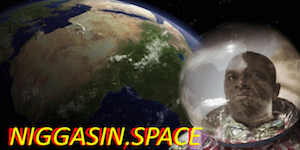

User Controls
does the position of the planets effect us?
-
2017-02-24 at 5:46 AM UTCit seems like when saturn is in a unusual spot, i feel pressure in my mind and it makes me do things.
does this happen to you? -
2017-02-24 at 5:48 AM UTCIn a physical sense no. In an astronomical sense neither because the orbits of the planets are stable around the sun. Only time the other planets indirectly affect us is when their gravity flings an asteroid our way or away from us.
-
2017-02-24 at 5:51 AM UTC[youtube]https://www.youtube.com/watch?v=aSGJObJkWf0[/youtube]
-
2017-02-24 at 5:54 AM UTCYour astral sense is telling you that you can probably jump galaxies if you had a infinite fuel space cruiser but technology just isn't there yet.
-
2017-02-24 at 5:57 AM UTCfull moon linked to high conciosness retrieval
-
2017-02-24 at 5:57 AM UTC
-
2017-02-24 at 5:59 AM UTCIn the energies of the full moon,
find a place that is peaceful and quiet,
either indoors perhaps where you can view the full moon,
or outdoors when the moon in high in the heavens.
Prepare as you would for meditation.
This is an exploration in consciousness.
Envision yourself slowly floating toward the moon.
It's energies become magnetic as you get closer.
Alas the moon is before you.
You enter the full moon,
only to discover that it is not the full moon at all,
but a creational source of light,
whose energies surround you.
Slowly you watch as this electromagnetic display of energy
surrounds you, until you become one with it.
It is here that all knowledge is stored and created.
You have entered the consciousness that creates our reality.
Now is your time to connect with creation, and your part in it.
Please stay as long as seems comfortable.
Open your mind and go beyond human thoughts.
You may see and hear things beyond your imagination,
some beyond your ability to manifest into thought-forms
which make no sense to your physical mind, yet are connecting
with your genetic encoding, to awaken and activate.
Enjoy your journey.
The magic and alchemy await your transition.
The following users say it would be alright if the author of this post didn't die in a fire! -
2017-02-24 at 6:08 AM UTCmy most impactful revelations have come to me while tripping on acid and while high on marijuana
-
2017-02-24 at 7:46 AM UTCNo idiot
-
2017-02-25 at 8:02 AM UTCbump yes
-
2017-02-25 at 8:39 AM UTC
Originally posted by Sophie In a physical sense no. In an astronomical sense neither because the orbits of the planets are stable around the sun. Only time the other planets indirectly affect us is when their gravity flings an asteroid our way or away from us.
well then you'd be wrong. physicality is highly linked to astronomicality. -
2017-02-25 at 8:44 AM UTCgang stalking is real , i'm a victim of it lol
-
2017-02-25 at 8:46 AM UTCThe following users say it would be alright if the author of this post didn't die in a fire!
-
2017-02-25 at 10:56 AM UTCNo
-
2017-02-25 at 3:35 PM UTC
Originally posted by Sophie In a physical sense no. In an astronomical sense neither because the orbits of the planets are stable around the sun. Only time the other planets indirectly affect us is when their gravity flings an asteroid our way or away from us.
The stability of the Solar System is a subject of much inquiry in astronomy. Though the planets have been stable when historically observed, and will be in the short term, their weak gravitational effects on one another can add up in unpredictable ways. For this reason (among others) the Solar System is stated to be chaotic,[1] and even the most precise long-term models for the orbital motion of the Solar System are not valid over more than a few tens of millions of years.[2]
The Solar System is stable in human terms, and far beyond, given that none of the planets will collide with each other or be ejected from the system in the next few billion years,[3] and the Earth's orbit will be relatively stable.[4]The planets' orbits are chaotic over longer timescales, such that the whole Solar System possesses a Lyapunov time in the range of 2–230 million years.[3] In all cases this means that the position of a planet along its orbit ultimately becomes impossible to predict with any certainty (so, for example, the timing of winter and summer become uncertain), but in some cases the orbits themselves may change dramatically. Such chaos manifests most strongly as changes in eccentricity, with some planets' orbits becoming significantly more—or less—elliptical.[7]
In calculation, the unknowns include asteroids, the solar quadrupole moment, mass loss from the Sun through radiation and solar wind, and drag of solar wind on planetary magnetospheres, galactic tidal forces, the fractional effect, and effects from passing stars.[8]
Furthermore, the equations of motion describe a process that is inherently serial, so there is little to be gained from using massively parallel computers.[citation needed]
-
2017-03-02 at 2:13 AM UTC
-
2017-03-02 at 2:46 AM UTC
Originally posted by Lanny https://www.youtube.com/watch?v=tjKHQeRSvjk
ZThis thread is now about DR. Octagon
Fuck I don't like rap or whatever this shit is but DR Octagon was the only thing I could stand.
https://www.youtube.com/watch?v=Abky6hbKPpg&list=RDAbky6hbKPpg#t=0
LOve that one. -
2017-03-02 at 2:49 AM UTC
Originally posted by SCronaldo_J_Trump https://www.youtube.com/watch?v=HQ-DJd-57Lo
-
2017-03-02 at 7:50 AM UTCRIP DR OCAGON
-
2017-03-02 at 8:24 AM UTC
Originally posted by Sophie In a physical sense no. In an astronomical sense neither because the orbits of the planets are stable around the sun. Only time the other planets indirectly affect us is when their gravity flings an asteroid our way or away from us.
the relative positions of the planets to one another by their orbits doesn't have any effects even in relation to the sun?